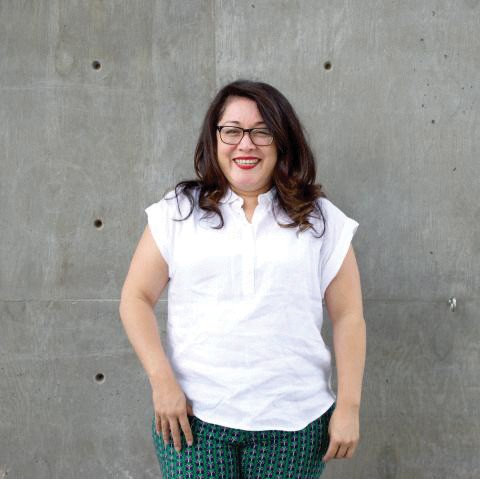Daily Wildcat: What is the role of a literary director?
Diana Delgado: That is actually a really good question. I think it is somebody who is there to curate the reading and lecture series and really be engaged with the literary community to bring poets to the poetry center, and work that is inspiring across diverse communities. I think that foremost is the main role.
DW: Do you like it so far?
DD: I’ve been here for three months, and I do. I think that it’s a lot of that, and it’s a lot of other things when you’re working closely with the Tucson community. That’s one of the things that I really learned about Tucson is they have a very strong literary community and that wasn’t something that I had really sort of thought of or presupposed before I got here. So, it’s been really nice to learn that.
RELATED: Travel back in time with UA Libraries
DW: With your role as a literary director, what are you most looking forward to this year?
DD: I think probably building the relationships that are needed to do well in the role and getting to know the community. I think that that’s part of the role, and I think that that’s something I’m enjoying about it and like looking forward to … there’s so many literary organizations in Tucson, and there’s so many events that they put on. And I’m learning about it, and it’s actually kind of amazing that there’s so many of these works that are just about bringing writers to Tucson.
DW: Did you got offered this position, or were you looking for positions?
DD: I think one of the reasons that I was interested in applying for the role is because it blended some of my previous experience as an administrator with poetry. I’m a published poet, but I’ve also done a lot of work as an administrator at not-for-profits. Part of the reason why I thought the role was interesting is because Tucson, although it’s small, it has a strong literary community and the other part is because it kind of blended everything that’s from a non-for-profit that I’ve worked with. The role and the center.
RELATED: LGBTQ+ fraternities/sororities balance exclusivity with inclusivity
DW: You have an upcoming work, it’s called “Tracing the Horse”, can you tell me about that?
DD: Yes! I have a book coming out! It’s coming out in the Fall of 2019. A lot of it is about my growing up in Southern California. I’m Mexican-American, and I grew up kind of caught between both the immigrant culture, as well as my mom was really eager to assimilate, and I think a lot of that is what it means to be Chicana, to be in-between those two different stratums.
DW: Have you shown it to different people? How have they reacted?
DD: Oh my god so many, so many. I think I’m somebody who works very well in groups, in a sort of workshop style. So, I have a lot of trusted readers that have taken a look at it over the past few years and they’ve seen it. I think they’ve liked it. They tell me they like it. But I think the real test is like, you know when I felt that I was finished with it, I really felt that I was finished with it, and I felt that it was something I had completed.
DW: You say you have some background in administration, what’s your background with regards to your studies?
DD: I studied poetry both as an undergrad at UC Riverside. I had my degree in poetry there, and then I studied poetry in Columbia University. Then while I was in New York I think the work that I was doing there was very separate from my degree. I worked at the Clinton Foundation, and then I worked in publishing for a while, and then I ended up working at Coalition for Hispanic Family Services, which is a not-for-profit that’s based in Brooklyn, and I was both doing that and publishing, but it was very separate.
DW: When you say mentor, where there people in your university that you worked closely with?
DD: Yeah, you know I’ve been very blessed with having some really great mentors and some very positive relationships that have really supported not only my work, but my growth as a human being. Maurya Simon, who I studied with at UC Riverside, who will actually be reading at the Poetry Center in I think April of 2019, she’s somebody that really supported my work early on, when I was a younger poet. Maurya Simon, Lorna Dee Cervantes, she was another Chicana poet that I met and she was like, “Come to this workshop!” She has a workshop in Isla de Mujeres in Mexico. She invited me to that and I studied with her.
DW: Do you work closely with students?
DD: I think the closest that I’ve worked with is the MFA, the creative writing MFA. We have shop talks before a poet actually comes, on a Tuesday night. We offer an opportunity for students in the MFA program to actually host and lead the shop talk about the poet that’s coming.
Follow Sofia Moraga on Twitter









